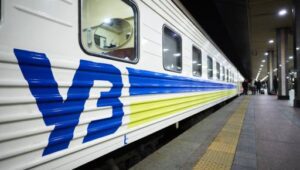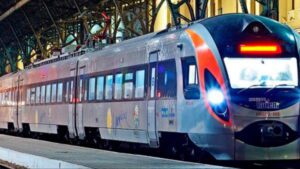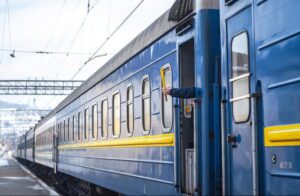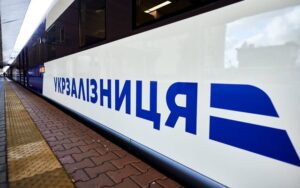
Company-trader “Ukrzaliznytsia” – “Energo Sales Trans” – in January for the first time bought natural gas for the needs of the production enterprises of UZ without intermediaries, which allowed to reduce the price to 18.6 thousand UAH per thousand cubic meters, the Ministry reported on Facebook page on Saturday.
“The cost of gas came out more than 25% lower compared to the prices at which the enterprises of the structure of JSC “Ukrzaliznytsia” bought natural gas at the end of last year through private suppliers. The new price was 18.6 thousand UAH per thousand cubic meters”, – the words of Deputy Prime Minister – Head of the Ministry of recovery Oleksandr Kubrakov are given in the message.
According to him, the next step will be the direct purchase of natural gas from the producers directly to the needs of JSC “Ukrzaliznytsia”.
Kubrakov recalled that in 2021 “Ukrzaliznytsia” was allowed to buy electricity from “Enerhoatom” and other subjects of state generation for the period up to 3 years under a special simplified procedure. In addition, in 2022 the government allowed Ukrzaliznytsia to purchase oil products directly under foreign economic contracts.
The weighted average price of natural gas on the Ukrainian Energy Exchange on 28 January was 19,950,000 hryvnyas per 1,000 cu.m.

“Ukrzaliznytsia” will continue to buy diesel fuel under direct contracts with ExxonMobile and PKN Orlen in 2023, covering its own needs, the task of providing other state agencies is not yet, said the head of the company Oleksandr Kamyshyn at a concluding briefing on Thursday.
“The level of fuel we import is enough for us. There is no task to import for other state structures. As soon as such task will be set, we will do it,” – said the head of UZ.
Thanks to direct contracts for the purchase of diesel fuel, which were signed in 2022 with ExxonMobile and PKN Orlen, savings amounted to more than 1 billion UAH, the company said on its website.

JSC “Ukrzaliznytsia” (UZ) has appointed commuter trains from Kharkiv to Kramatorsk and Slavyansk.
The company said in a Telegram that trains will run from Feb. 2:
No. 6812 Kramatorsk-Kharkiv. Departure from Kramatorsk – at 7:25, arrival in Kharkiv (via Slavyansk, where the train will stop at 7:48) – at 13:00;
#6813 Kharkiv-Slaviansk. Departure from Kharkiv – at 13:40, arrival in Slavyansk – 18:41.
As reported on 14 October, Ukrzaliznytsia resumed railway service to Kramatorsk (Donetsk Region), where trains have not run since early April last year.

Ukrzaliznytsia announces the appointment of seven additional passenger trains on New Year’s Eve, six of which are in the Carpathian direction.
Train number 191/192 Kiev-Lviv on December 30. At 7:44 departure from Kiev, at 15:28 arrival in Lviv. Return trip on the same day: at 8:06 departure from Lviv, at 15:38 arrival in Kyiv.
Train #229/230 Kiev-Uzhgorod via Vinnitsa, Khmelnitsky, Ternopol, Lviv, Slavske, Mukachevo. December 29 at 20:03 departure from Kiev, December 30 at 13:23 arrival in Uzhgorod. Return trip: December 30 at 22:21 departure from Uzhgorod, December 31 at 13:40 arrival in Kiev.
Train #238/237 Odessa-Uzhgorod via Zhmerinka, Khmelnitsky, Ternopol, Lviv, Slavske, Mukachevo. December 29 at 17:00 departure from Odessa, December 30 at 12:02 arrival in Uzhgorod. Return trip: December 30 at 17:00 departure from Uzhgorod, December 31 at 11:06 arrival in Odessa.
Train № 216/215 Zaporizhzhya – Ivano-Frankivsk. December 28 and 30 at 13:05 departure from Zaporozhye, at 4:58-5:50 travel through Lviv and at 8:13 arrival in Ivano-Frankivsk. Return flights: December 29 and 31 at 15:42 departure from Ivano-Frankivsk, at 18:35-19:10 travel through Lviv and at 12:05 arrival to Zaporizhzhia.
№255/256 Kyiv-Chernivtsi via Ivano-Frankivsk and Kolomyia. Departure from Kiev on December 28, 29 and 30, arrival the next day at 5:50 in Chernivtsi. Return flights: December 29, 30 and January 1 at 17:38 departure from Chernivtsi, next day at 9:22 arrival to Kyiv.
№ 211/212 Kharkiv-Lviv. December 29 at 13:43 departure from Kharkiv, December 30 at 8:27 arrival in Lviv. Return trip: at 17:50 from Lviv arriving in Kharkiv at 12:13.
#176/175 Kyiv-Kryvyi Rih via Myronivka, Shevchenko station, Alexandria on December 30. At 6:19 departure from Kiev, at 15:07 arrival in Krivoy Rog. Return trip on the same day: at 8:09 departure

JSC “Ukrzaliznytsia” announces the appointment of seven additional passenger trains on the eve of the New Year, six of which in the Carpathian direction.
Train number 191/192 Kiev-Lviv on December 30. At 7:44 departure from Kiev, at 15:28 arrival in Lviv. Return trip on the same day: at 8:06 departure from Lviv, at 15:38 arrival in Kyiv.
Train #229/230 Kiev-Uzhgorod via Vinnitsa, Khmelnitsky, Ternopol, Lviv, Slavske, Mukachevo. December 29 at 20:03 departure from Kiev, December 30 at 13:23 arrival in Uzhgorod. Return trip: December 30 at 22:21 departure from Uzhgorod, December 31 at 13:40 arrival in Kiev.
Train #238/237 Odessa-Uzhgorod via Zhmerinka, Khmelnitsky, Ternopol, Lviv, Slavske, Mukachevo. December 29 at 17:00 departure from Odessa, December 30 at 12:02 arrival in Uzhgorod. Return trip: December 30 at 17:00 departure from Uzhgorod, December 31 at 11:06 arrival in Odessa.
Train № 216/215 Zaporizhzhya – Ivano-Frankivsk. December 28 and 30 at 13:05 departure from Zaporizhzhya, at 4:58-5:50 passage through Lviv and at 8:13 arrival in Ivano-Frankivsk. Return flights: December 29 and 31 at 15:42 departure from Ivano-Frankivsk, at 18:35-19:10 travel through Lviv and at 12:05 arrival to Zaporizhzhia.
№255/256 Kyiv-Chernivtsi via Ivano-Frankivsk and Kolomyia. Departure from Kiev on December 28, 29 and 30, arrival the next day at 5:50 in Chernivtsi. Return flights: December 29, 30 and January 1 at 17:38 departure from Chernivtsi, next day at 9:22 arrival to Kyiv.
№ 211/212 Kharkiv-Lviv. December 29 at 13:43 departure from Kharkiv, December 30 at 8:27 arrival in Lviv. Return trip: at 17:50 from Lviv arriving in Kharkiv at 12:13.
#176/175 Kyiv-Kryvyi Rih via Myronivka, Shevchenko station, Alexandria on December 30. At 6:19 departure from Kiev, at 15:07 arrival in Krivoy Rog. Return trip on the same day: 8:09 departure from Kryvyi Rih, 16:26 arrival in Kiev.

Ukrzaliznytsia has reported that four international flights were delayed by more than two and a half hours due to the accumulation of trains on the Polish border.
In particular, with the delay arrived: 715/716 Peremyshl – Kyiv (+7:13), 31/32 Peremyshl – Zaporizhzhia (+3:58), 705/706 Kyiv – Peremyshl (+2:37) and 89/90 Peremyshl – Kyiv (+2:30).
In addition, due to lack of voltage in the overhead system as a result of shelling on the Marganets – Nikopol section, UZ has changed the route of three trains: №62 Odessa – Kharkiv, №120 Lviv – Zaporizhzhya, and №276 Kiev – Zaporizhzhya-1. They will pass from station Krivoy Rog Main through Verkhovtsevo, Dnepr Main, Sinelnikovo-2, Sinelnikovo-1, Zaporizhzhia-1, Sinelnikovo-1 without going to stations Apostolovo, Nikopol, Chortomlyk, Marganets, Dneprobut-2.
Train No. 62 Odessa – Kharkiv will further pass through Pavlograd-1 and Lozovaya, bypassing Novomoskovsk Dneprovsky.